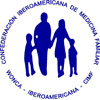National, cross-sectional findings from community service officers in South Africa
Resumo
Objetivos: National, cross-sectional data was collected from community service officers who served during 2009 using a structured self-report questionnaire.
Metodologia ou descrição da experiência: A Supervision Satisfaction Scale (SSS) was created by summing scores of five questions rated on a three-point Likert scale (orientation, clinical advising, ongoing mentorship, accessibility of clinic leadership, and handling of community service officers’ concerns). Research endpoints were guided by community service programmatic goals and analysed as dichotomous outcomes. Bivariate and multivariate logistical regressions were conducted using Stata 12.
Resultados: The sample population comprised 685 doctors and dentists (response rate 44%). Rural placement was disproportionately more likely among unmarried, male, and black practitioners exclusively. Rates of self-reported professional development in this sample were high (87%). Participants with higher scores on the SSS were more likely to report professional development. Although few participants planned to continue work in rural, underserved communities (25%), those serving in a rural facility during the community service year had higher intentions of continuing rural work. Those reporting professional development were twice as likely to report intentions to remain in rural, underserved communities.
Conclusões ou hipóteses: Despite challenges in equitable distribution of practitioners, participant satisfaction with the compulsory community service programme appears to be high. An emphasis on professional development and supervision is crucial if South Africa is to build practitioner skills, equitably distribute health professionals throughout the country, and retain the medical workforce in rural underserved areas.
Palavras-chave
Texto completo:
PDF (English)Apontamentos
- Não há apontamentos.
Este periódico é de responsabilidade das associações:
Apoio institucional:







